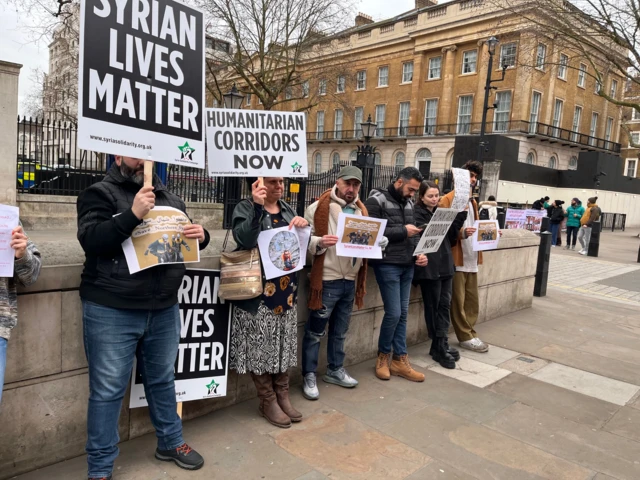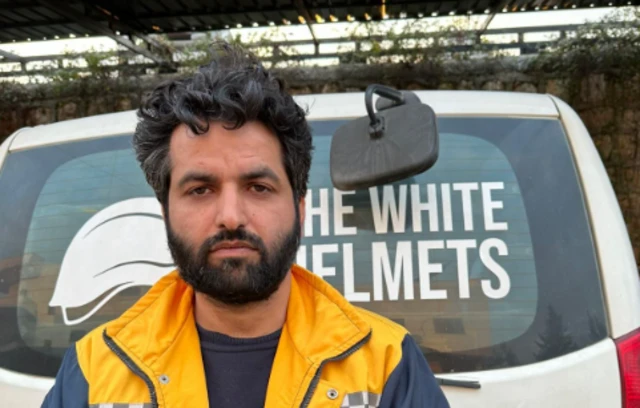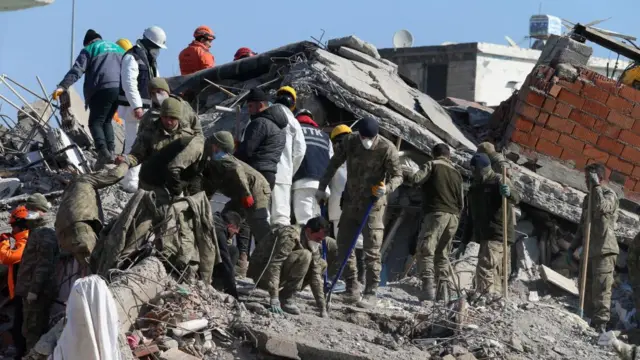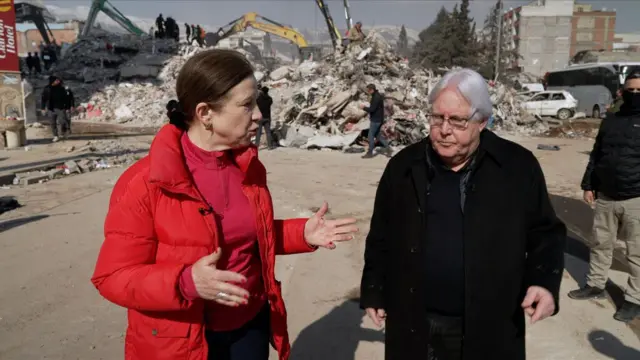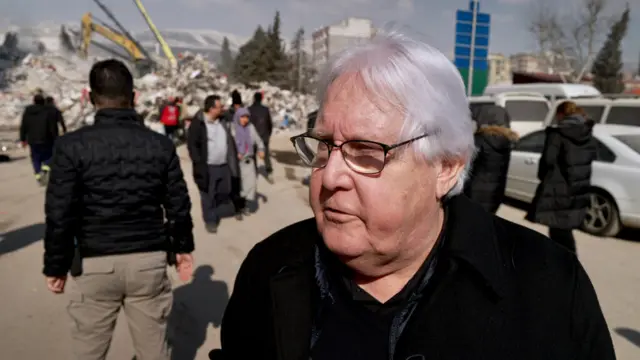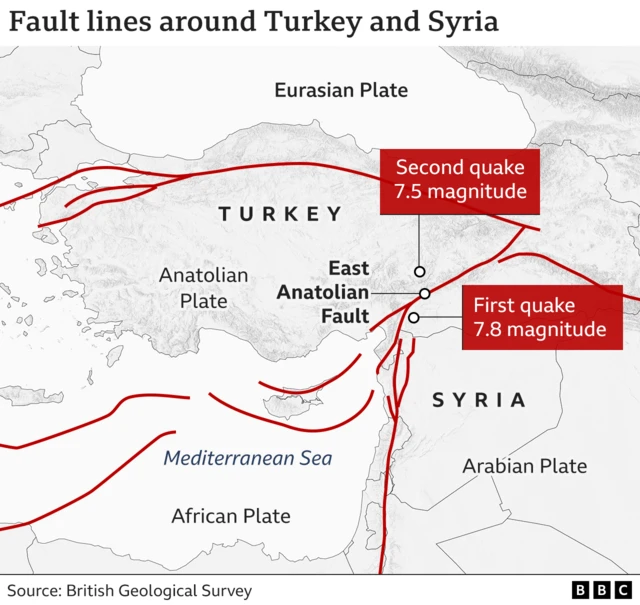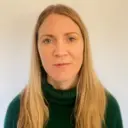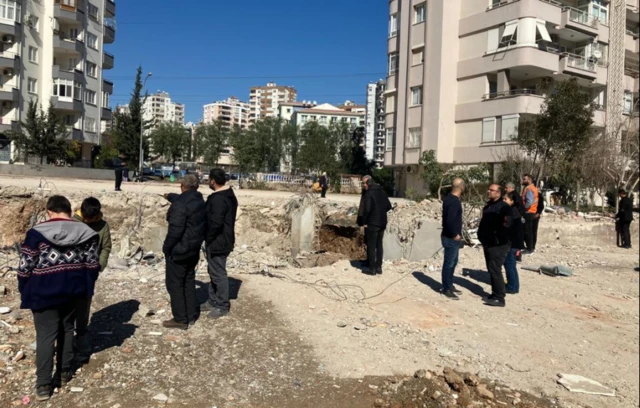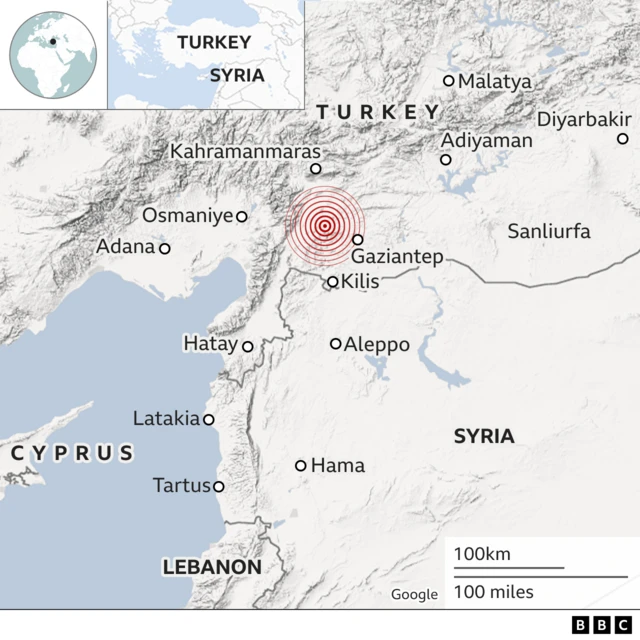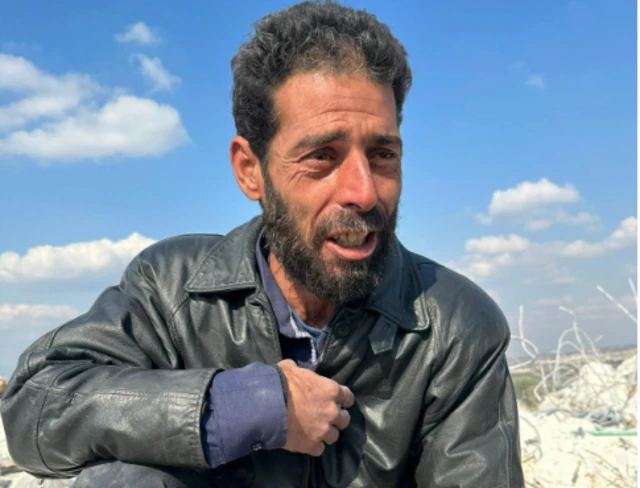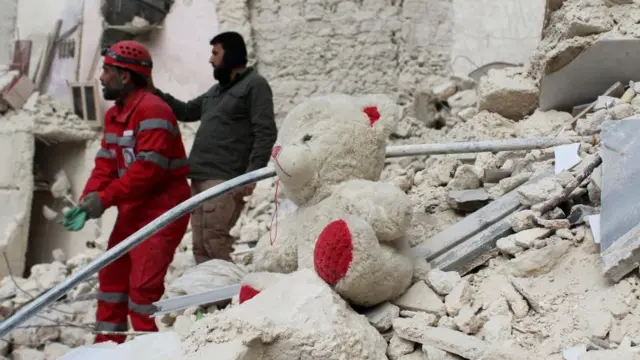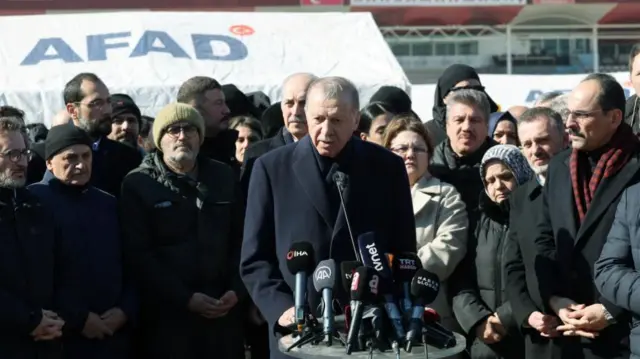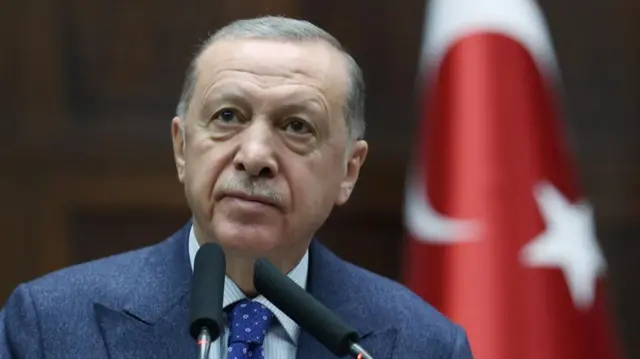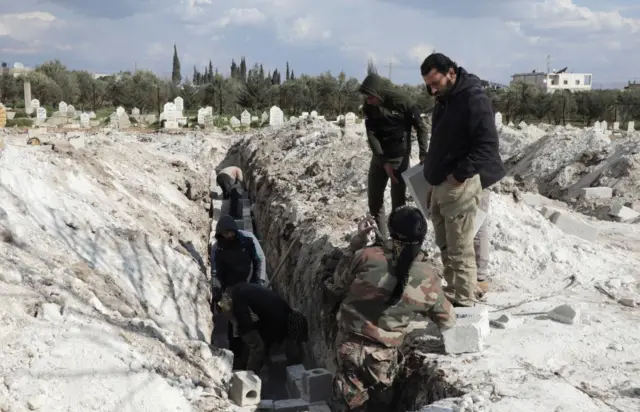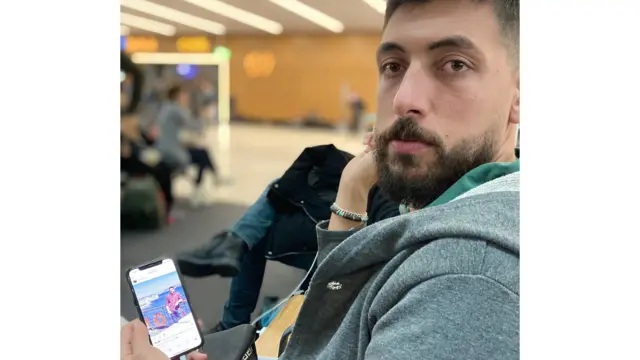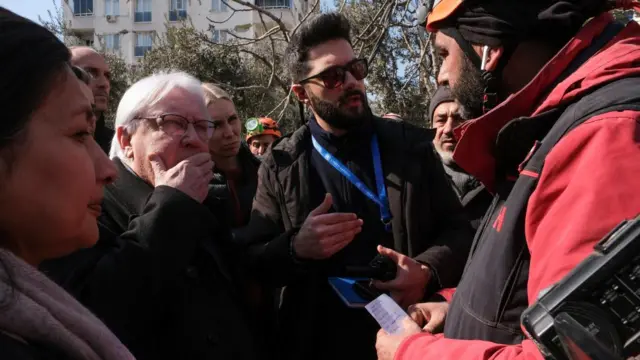Thanks for joining uspublished at 16:46 GMT 11 February 2023
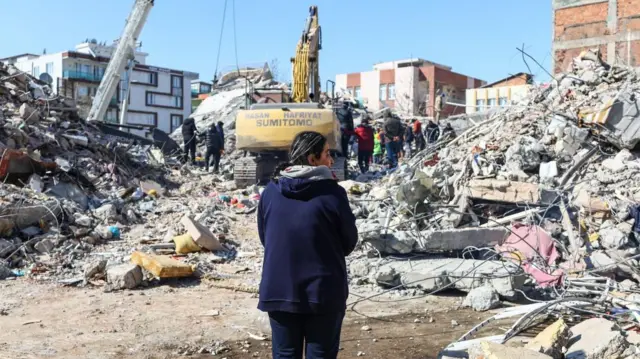 Image source, EPA
Image source, EPARescue crews in Turkey and Syria are continuing to search beneath the rubble for survivors of Monday's devastating earthquakes.
We'll be pausing our coverage shortly, but before we do, here are the latest developments:
- The death toll has now exceeded 25,000 - including 21,848 people who have died in Turkey and a reported 3,553 in Syria, where new figures have not been released since Friday
- Some 24.4 million people in both countries have been affected, according to Turkish officials and the United Nations cites by Reuters, in an area spanning roughly 450 km (280 miles)
- A family of five have reportedly been pulled from the rubble in Turkey five days after the quake, but despite some miraculous rescues, hope of finding many more survivors is fading
- The UN's aid chief has told the BBC that "a conclusion is needed on when to call off the rescue effort", adding that the natural disaster is the worst he's ever seen
- The BBC's Quentin Sommerville is in Syria, where the White Helmets group have told him the international community "has blood on its hands" over not sending aid
- In Turkey, two German aid groups and the Austrian army have suspended their operations over concern about the worsening security situation
- Turkish officials have not reported clashes in the region following the quake, but President Erdogan earlier said that the government would take action against those involved in looting and other crimes
